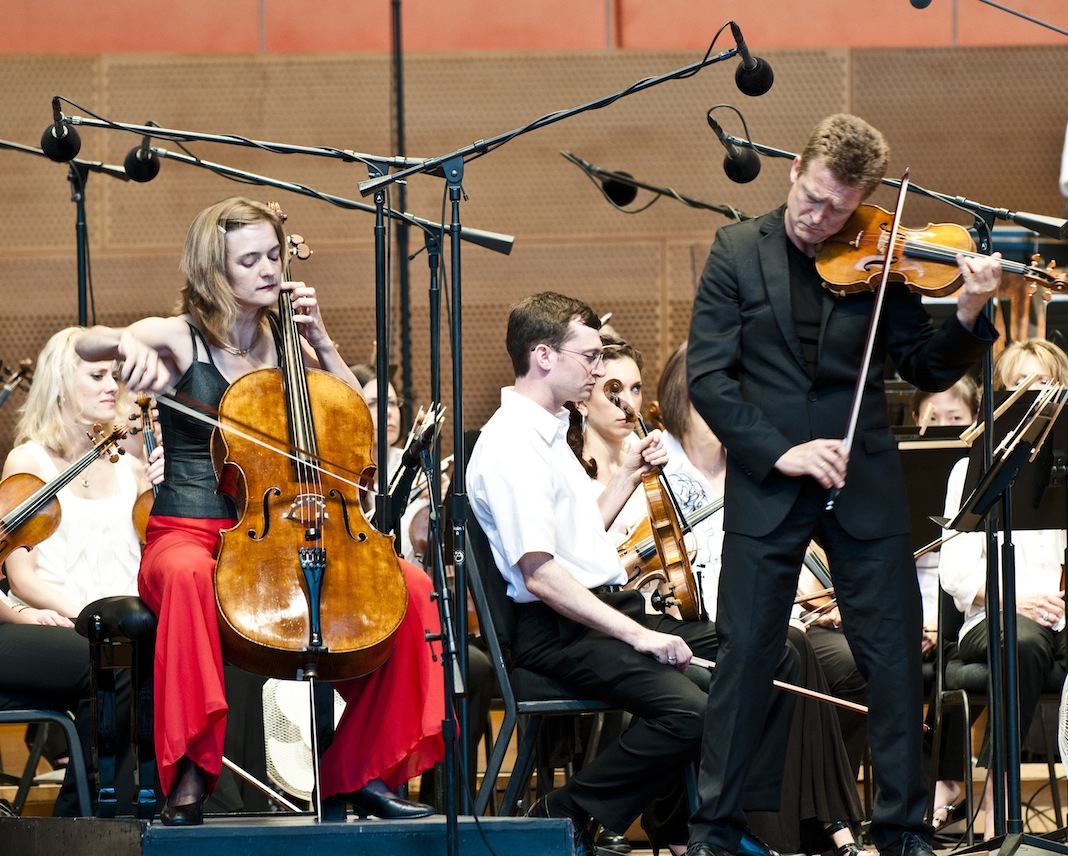Kalmar leads a fiery program of less familiar works from familiar Germans

Beethoven, Brahms, and Mendelssohn are hardly terra incognita on concert programs, but leave it to Carlos Kalmar and the Grant Park Orchestra to provide some repertorial topspin to the usual German suspects.
Wednesday night’s program at the Pritzker Pavilion led off with Beethoven’s Coriolan Overture. One of his lesser played concert raisers—largely because it ends quietly—Kalmer led a taut and fiery account that showed the hushed ending can be just as dramatic as any loudly punched chord.
Christian Tetzlaff has been one of the lakefront festival’s most popular guest artists going back many seasons. Wednesday night’s program offered Tetzlaff times two, with the German violinist joined by his cellist sister Tanja, in Brahms’ Double Concerto.
Brahms’ final orchestral work has never gained the popularity of his concertos for violin or piano, though the Double has been heard at both area summer festivals this year. The Tetzlaff siblings’ performance was more cohesive with greater unanimity of phrasing than that heard last month at Ravinia, where an out-of-sorts-sounding Nicola Benedetti didn’t match the eloquent playing of cellist Leonard Elschenbroich.
Christian Tetzlaff brought characteristic nervy virtuosity to the violin passages, relaxing nicely into the lyrical moments as well, with the slow movement taken at a flowing unsentimental pace. Tanja Tetzlaff’s playing was admirable but it quickly became clear which of the duo was the international soloist. While worthy enough, the cellist’s bluff approach, uneven projection and narrow dynamic range sounded rather pedestrian next to the quicksilver bravura, subtle bowing and expressive nuance of her brother. No complaints about the full-blooded accompaniment of Kalmar and the Grant Park Orchestra, which was with both soloists every step of the way.
Mendelssohn had already written a dozen string symphonies before completing his Symphony No. 1 for full orchestra at age 15. The teen composer’s Opus 11 is not quite as finished and prodigious an accomplishment as the Octet and Midsummer Night’s Dream Overture shortly to come. There are passing weak joins like the baldly scored trio of the third movement and somewhat academic fugal passages in the finale. But Mendelssohn’s First Symphony is still a remarkable achievement brimming with vitality and youthful high spirits.
Kalmar led a lively performance with crackling energy in the stormy opening movement. The festival’s principal conductor drew an elegant and graceful account of the Andante and the rousing final movement sealed the performance with the strings flying through the virtuosic figurations. The Grant Park winds, particularly oboist Nathan Mills and clarinetist Charlene Zimmerman, delivered terrific contributions throughout.
Posted in Performances




